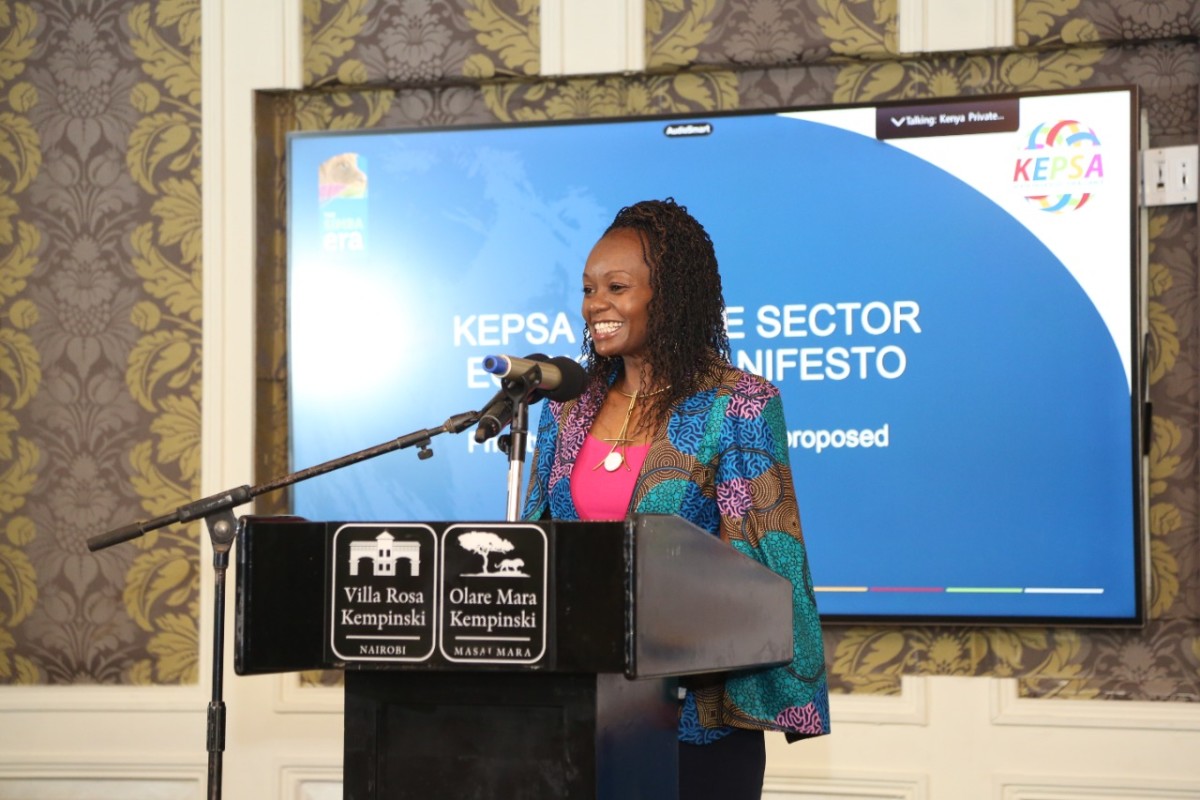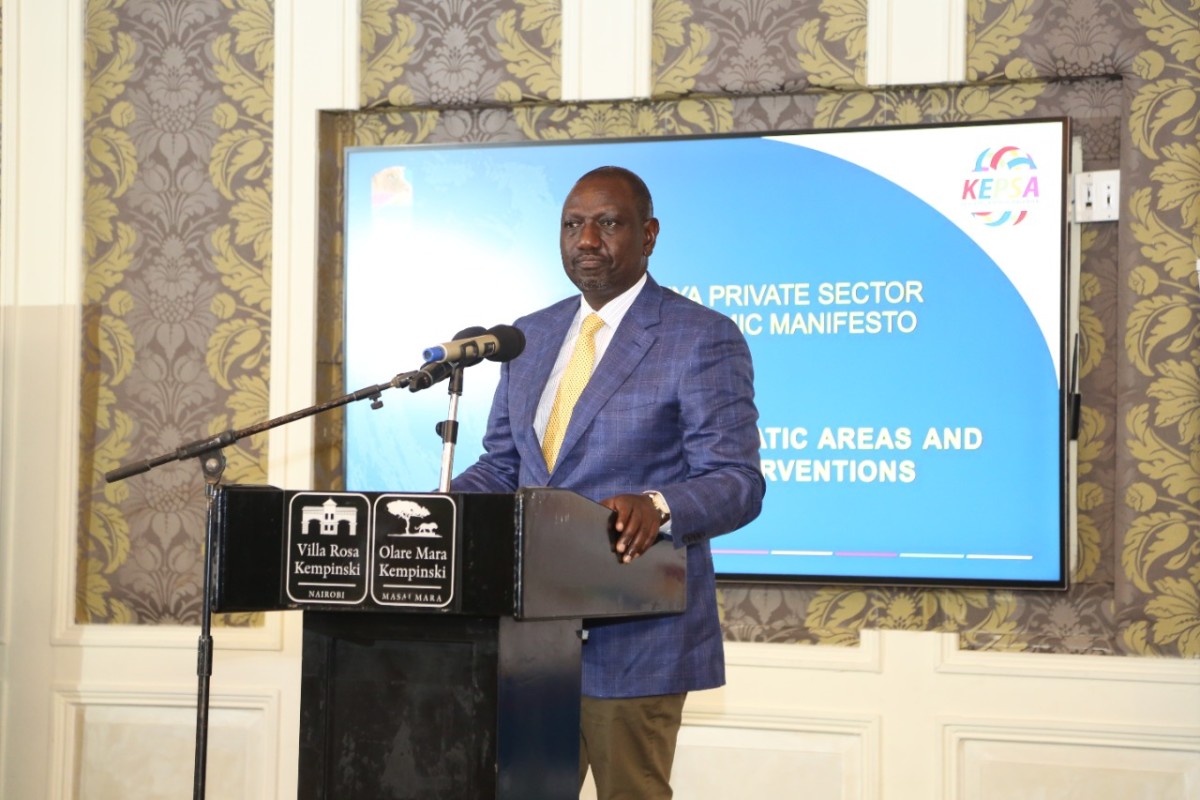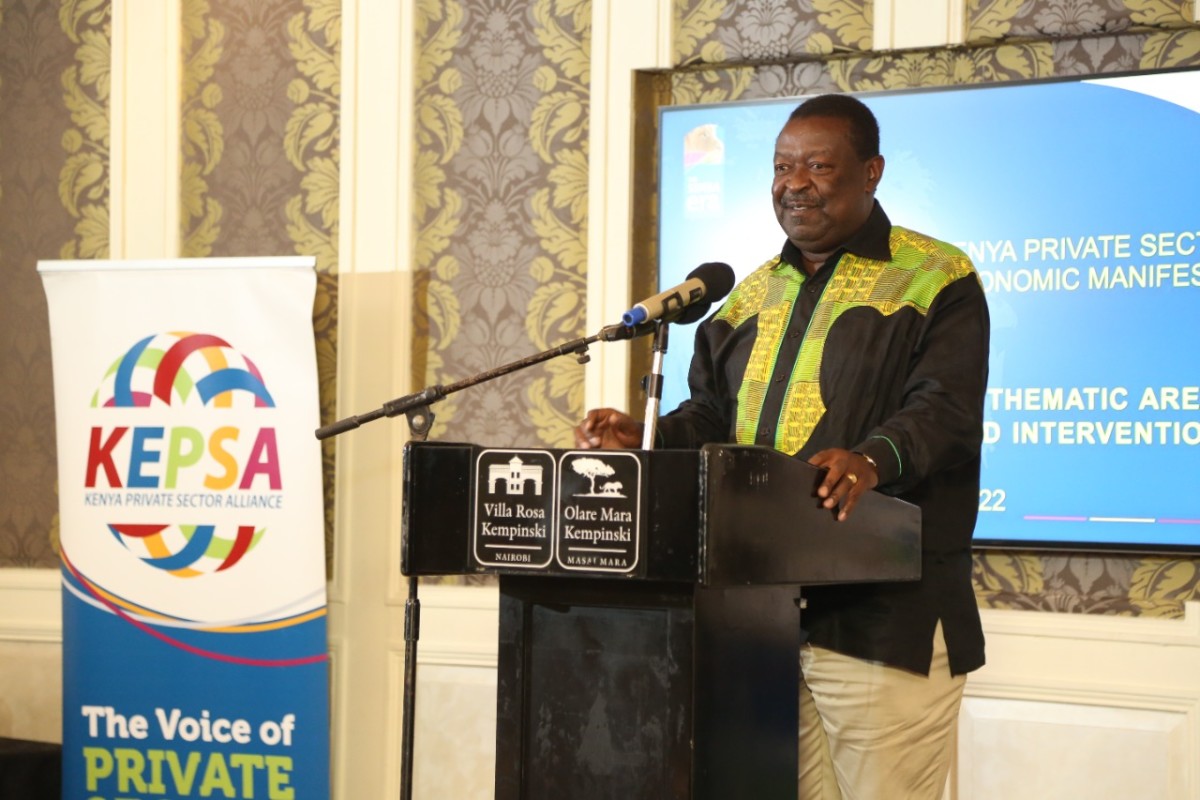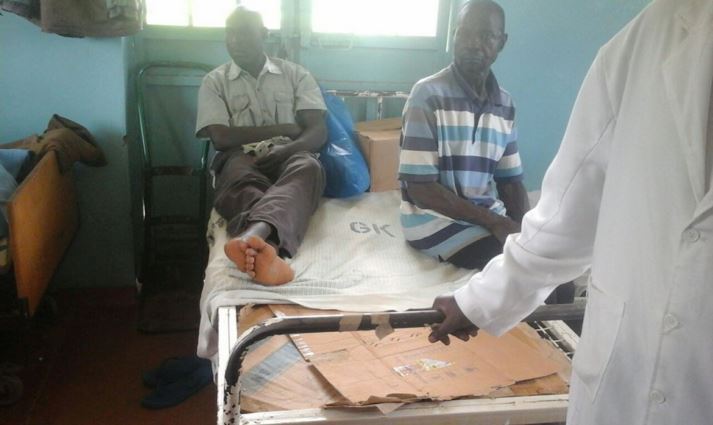The Kenya Private Sector Alliance (KEPSA) has today met with the Kenya Kwanza Alliance in a series of planned meetings with all presidential candidates to present the private sector economic manifesto.
This follows the first engagement meeting with the Azimio La Umoja Movement, held on March 2, 2022.
In the proposed Private Sector Economic Manifesto, KEPSA has outlined five key thematic areas that consolidate the private sector’s priorities and areas that require a transformation in order to actualize Vision 2030 over the next 8 years.
According to KEPSA Chief Executive Officer (CEO) Carole Kariuki, key among the priorities that KEPSA is pushing for is the spurring of jobs and inclusive wealth creation through investment in the expansion of key growth sectors such as the digital and circular economy and mainstreaming effective participation of small businesses in delivering the pending major Vision 2030 projects.
“We believe that every county has immense potential with new and bigger opportunities available in e-commerce and online businesses. For example, the government can invest in three to five agro-processing flagship projects with a view to enhancing value chains in the counties. Similarly, we want the Treasury to ensure the Local Content Policy under Buy-Kenya Build Kenya is fully entrenched in the preference and reservations regulations”, she said.
The second priority area is the social transformation to reduce inequalities, by guaranteeing good quality of life through access to relevant education, affordable health, 24hour security, affordable quality housing, markets, and public transport as well as clean water, all of which are critical components of improving productivity and competitiveness and creation of more jobs.

“Comprehensive social transformation can be realized through continuous investment in critical intervention areas such as the security sector to facilitate more people-centered approaches and adoption of digital technologies within the security and judicial processes to increase effectiveness and timely delivery of justice leading to enhanced stability and social cohesion”, said Kariuki.
Under the third theme of enhanced governance and economic stability, the private sector manifesto outlines the need for continued reforms in state corporations to ensure that resources are optimized with high efficiency and which KEPSA notes is critical for the improvement of public service delivery and shoring up investor confidence.
Other priority areas of the private sector include increased investment in cutting-edge innovation and research and development as well as creating a globally competitive business environment.
Speaking during the event, the Mkenya Daima Initiative Chair, Dr. Vimal Shah highlighted the key pillars of the initiative this year which seek to inculcate good leadership and governance alongside responsible participation in elections by Kenyans as well as encouraging peaceful transition of leadership.
In her remarks, KEPSA Chair, Ms. Flora Mutahi noted that creating an efficient business environment will expand the scope of doing business beyond the borders of the country and Africa at large.
“Participation, accountability, and collaboration between the government and the private sector are key ingredients to the growth of the business environment. KEPSA has players that exhibit the ability to be productive and we believe that continued dialogue between the private sector and the government has been efficient.” she said.
On his part, the Deputy President, H.E. William Ruto said that if elected, the Kenya Kwanza Alliance will within the first 100 days, capitalize private sector opportunity areas that have the potential to create the highest number of jobs and wealth within the shortest time possible.

“Looking at the whole economy, we know we have limited resources as a country, so we shall deploy funds to stimulate private sector capitation in the SME, agriculture, and housing sectors. We believe that in these sectors, we have the biggest opportunities to create jobs for our people and wealth for our businesses to move everybody to the next level”, he said.
According to Ruto, the Kenya Kwanza government would also within the first 100 days, pump an additional Kes. 50 billion in the SME Fund and devolve the same to all Wards with a view to spurring productivity while expanding market access for the small businesses, especially for farmers through affordable seeds and fertilizer provision.
“We currently produce between 3 and 4 kilograms of milk per cow. With quality feed we can increase our productivity in milk to between 15 and 20 kilograms daily and double our per capita production from the current 5 billion liters to 10 billion liters”, said Ruto, adding that with the right policies milk production could easily rival Tea as a foreign exchange earner in the country.
On the fight against corruption, the Deputy President said his government would prioritize empowering the Judiciary with adequate financing equivalent to global benchmark of 2.25% of national GDP from the current 0.06% so that the Judiciary could discharge its mandate effectively and independently, as the first executive order of his Presidency.

The Private Sector Economic Manifesto has been developed by KEPSA through a stakeholder engagement process cutting across all sectors of the economy. It draws out key priorities for national development and business sectoral priorities, and which can only be achieved through partnership and collaboration with government and other stakeholders.
This will help Kenyans achieve their aspirations of a better future and strive for a country that has good governance and leadership, public accountability, and efficient and transparent systems, as well as create hope, confidence, and optimism among Kenyans.
KEPSA’s vision is to be a world-class private sector apex body. The primary mission is to ensure year-on-year improvement in the overall business environment for Kenya by working together with the government and other stakeholders and being involved in the socio-economic development of the country.



